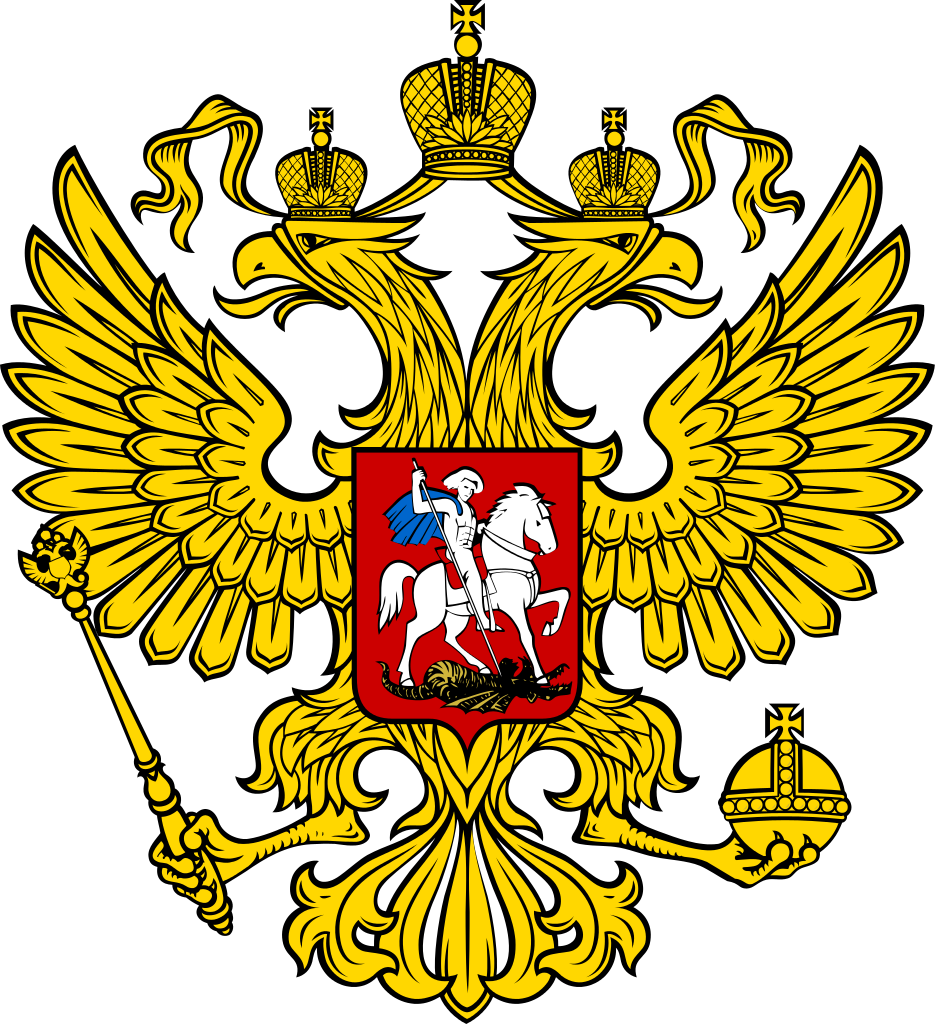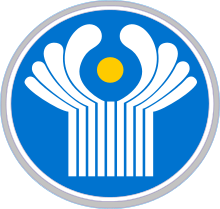The history of the Gnesins music schools began in the period of Russian culture known as the Silver Age. The creative atmosphere of life at the turn of 19th-20th centuries, with its great flourishing of literature and the arts, was accompanied by a remarkable rise in educational activity. In all areas of culture, including music, traditions of scholarship and performance were developed and new standards of education were set, allowing for a practical mastery of the arts that became firmly rooted in the everyday life of society.This lively musical culture and immediate demand for concert, teaching and scholarly work let young musicians of the day begin their professional careers with confidence, aiming toward new horizons and new achievements.

The Gnesin sisters entered this new and expanding arena in the field of education. The opening of private music courses, classes and schools was not uncommon at the time. Enthusiastic conservatory students were setting up popular universities, various music schools were being established. Yet of all the private educational centers in Moscow at the turn of the century, only the Gnesins’ would survive the many cataclysms of the 20th century and firmly establish itself among the most hallowed educational institutions of Russia.

In 1895 Elena, Evgenia and Maria Gnesin opened their own music school in Moscow, a «college» [uchilishche] at which both children and adults could study. The younger students included the children of longtime Gnesins’ family friend (and conservatory classmate) Alexander Scriabin; among the senior students and first graduates of the school was the youngest Gnesins’ sister, Olga, who completed the course in piano taught by elder sister Elena and immediately joined the teaching staff at her new alma mater.

Evgenia, Elena and Maria Gnesin were among the finest graduates of the Moscow Conservatory. Elizaveta Gnesina, a student of famed Czech-Russian violinist Jan Hřímalý, set up the school’s violin classes and chamber ensemble. The first certified composer in the Gnesins’ family was the sisters’ brother, Mikhail, who headed the school’s composition classes. In his creative and pedagogical activities, Mikhail Gnesin reflected the traditions of both the St. Petersburg and Moscow schools. He was a student of Rimsky-Korsakov and served as a professor at the Moscow and then the Leningrad Conservatories. From the school’s earliest years Elena Gnesina taught classes in piano teaching techniques. In those days, such an innovation was unusual, even in private schools. Historical and theoretical subjects were initially taught by the Gnesins themselves (and later by such notables as Gliere, Gretchaninov). Evgenia Gnesina was a particular enthusiast in this area. As a multifaceted and gifted musician, Evgenia taught to students the music and drama classes led by Fyodor Komissarzhevsky and Konstantin Stanislavsky in her first years after finishing the conservatory. Another important pedagogical undertaking at the Gnesin school was the creation of the first children’s concert choir in Moscow. «I wrote almost all my choral works for the Gnesin class», recalled Aleksandr Grechaninov. «I would barely finish the latest ones and Evgenia Gnesina’s choir would already be singing them…It was great fun working like that, and great to hear such lovely performances». Close attention to the historical and theoretical disciplines, coupled with the obligatory practice of choral singing and the recommended study of composition in the course on the performance of art, was what originally distinguished the Gnesins’ house of music from other establishments. The Gnesins set themselves a goal to educate musicians to a high level of intellectual and artistic erudition.
«WE WILL MEET THE DISASTERS OF THE CENTURY WITH A FLURRY OF CREATIVE ACTIVITY!»
Looking back from the present day, it seems that such was the motto under which the development the Gnesin house took place over the course of the 20th century. In the most trying times and circumstances, the Gnesins’ school remained a symbol of the durability of Russian national culture. By the end of the century’s second decade (World War I, the Russian Civil War), the school’s accumulated professional potential «exploded» in reorganization: the junior division was designated the children’s school (a seven-year course), while the senior became an exemplary musical college [tekhnikum], receiving the imprimatur of a State institution.
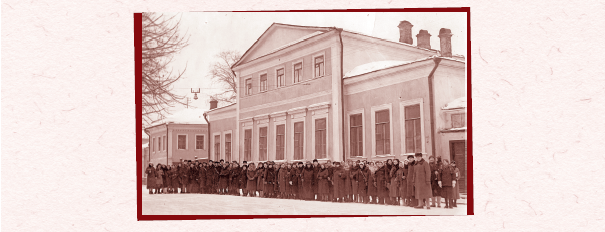
In the mid-1940s (World War II), the highest level of the Gnesins house was named the Gnesins State Musical-Pedagogical Institute, with a special music secondary school (a ten-year curriculum) appended to it. The people’s faith in a victorious end to the war was embodied in the school’s tireless training of musicians for the education of future generations and the preservation and development of the best traditions of musical culture for the benefit of our homeland. In the early 1990s (the collapse of the USSR) the institution gained new momentum. This was due in no small part to its special pedagogical orientation. As the country’s largest music education center, the school was transformed into an academy: the Gnesins Russian Academy of Music. This was the first time in the nation’s history that a music institution had been awarded academy status.

In 1944, the foundation of the Gnesin school consisted of four called faculties: Piano, Orchestral, Vocal Studies, and Music History, Theory and Composition. They were headed by outstanding musicians. These people were the embodiment of the national culture, the founders of the performing, scholarly and pedagogical schools of our country: G. G. Neuhaus, T. D. Gutmann, M. V. Yudina, A. D. Gottlieb, S. M. Kozolupov, V. V. Borisovskii, K. A. Erdelyi, L. N. Oborin, M. I. Tabakov, I. F. Pushechnikov, N. I. Speranskii, N. A. Verbova, O. F. Slavinskaya, A. L. Stark, S. S. Screbkov, V. D. Konen, N. A. Garbuzov. Later — K. B. Ptitsa, S. Z. Trubachev, A. S. Ilyukhin, A. I. Khachaturian, Y. V. Flier, B. A. Pokrovsky, N. D. Shpiller, A. A. Yurlov, A. V. Rybnov, B. A. Tchaikovsky, M. I. Fikhtengolts, P. M. Nortsov, N. I. Peyko, M. I. Grinberg, A. I. Vedernikov, V. S. Loktev, A. I. Yampolsky, E. V. Gippius, Y. N. Tyulin, V. P. Bobrovskii, A. D. Alekseev, P. I. Necheporenko, V. A. Popov.

In the end 1940s, the school began to develop new areas of professional music education. The organization of programs of choral conducting (1946) was undertaken by K. B. Ptitsa, a remarkable teacher and choirmaster. Twenty years later, the academic activities of the department were supplemented by a then-unprecedented addition: the training of choral conductors (folk choir, 1966). The main role in organizing this belonged to A. A. Yurlov (an outstanding musician and a student of A. V. Sveshnikov) who in 1958 became head of the Republican Russian Capella Choir, now the Yurlov Russian State Choir. Meanwhile the Faculty of Folk Instruments, the first in the history of Russian music teaching institutions, was led by the balalaika player A. S. Ilyukhin (1948).
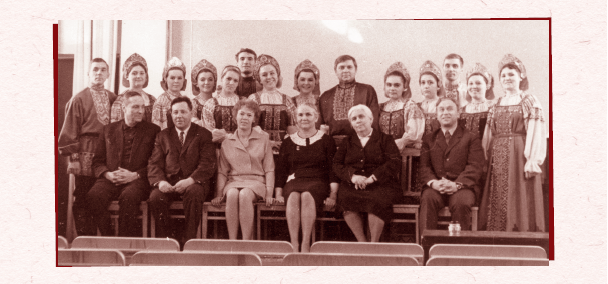
In the 1950s different trends arose in the activities of the faculties. Under the direction of A. D. Gottlieb, the Chamber Music Department was established. With the arrival of composer N. I. Peyko, a separate Department of Composition and Instrumentation was set up (1954). At various times, this department featured teaching by some of Russia’s outstanding composers, scholars, and teachers, among them G. I. Litinskii, O. K. Eiges, A. I. Khachaturian, A. A. Muravlev, V. J. Shebalin, G. P. Dmitriev, A. G. Chugaev, F. E. Vitachek, B. A. Tchaikovsky, Y. A. Fortunatov and others. In those same years, the Department of Pedagogy and Methodology was established, with a publishing division that has issued some 500 publications in its 50 year history. Also a recording office and laboratory for musical-technical training (under P. V. Lobanov) and a laboratory for studying Russian songs and folk music (V. I. Kharkov) were created. The Department of Solo Vocal Studies expanded the scholarly and practical activities of a laboratory of the physiology of phonation, which had existed in the Gnesins’ school since the founding of The Department of Solo Vocal Studies. In the 1960s, two Piano Departments were created: one, led by T. D. Gutman, was dominated by pianists of the Neuhaus school, while in the other, under A. L. Iokheles, representatives of the Igumnov school held sway. In the Department of Music Theory and Composition, a program of solfeggio and harmony (led by Y. N. Rags) and the one of polyphony and formal analysis (under F. G. Arzamanov) emerged as independent units.

Elena Gnesina led the institutions for 72 years. Through her initiatives and great organizational skills, her subtle sense of the musical personality and her professionalism as a specialist, at once demanding and responsive, new teachers were hired; new departments opened; the fates of students were decided; the careers of graduates were set up; new class buildings and auxiliary buildings for students were constructed; and plans for the building of a Gnesins concert hall were developed and brought to life. Elena Gnesina met with the students, knowing each by name and by the musical «blood type» of his or her particular talent. As in a large family, she bore the responsibility for each musician taken under the professional wing of the Gnesins house.
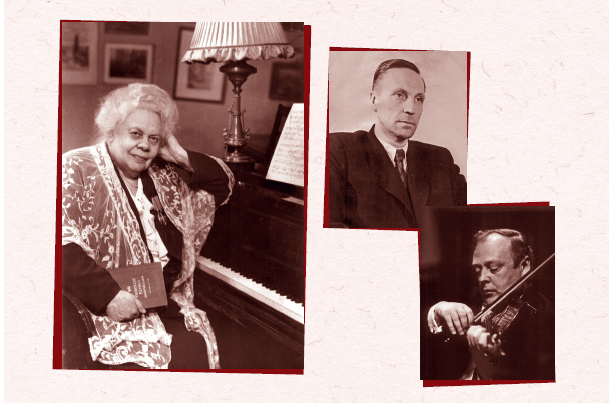
In the 1970-80s, following the receptive tradition of Gnesin family, who were always open to new waves of talent coursing into their musical home, the school added to its ranks musicians whose names adorn the nation’s musical art and scholarship: K. E. Volkov, Z. A. Dolukhanova, E. E. Nesterenko, A. A. Eisen, A. I. Vedernikov, N. S. Gulyanitskaya, A. A. Alexandrov, Y. P. Petrov, V. T. Spivakov, A. L. Larin, F. R. Lips, A. A. Tsygankov, V. P. Kruglov, M. A. Engovatova, V. N. Levko, L. V. Shamina, S. A. Chukov, V. M. Trushin, B. I. Talalay, A. A. Fedotov…
Gnesins graduates E. F. Svetlanov, V. I. Fedoseyev and N. N. Nekrasov came to head the country’s leading concert orchestras.
Innovations in the opening of new musical specialties continued. These included programs in solo folk singing, sound engineering and jazz and pop music performance. The initiator of a solo folk singing program was N. K. Meshko, the head of the Northern Russian Choir (1978). «…A recording should be technically competent, that goes without saying. We focus the attention of our students on the maximum understanding of the musical component of their profession». Such was the motto adopted by P. K. Kondrashin, I. P. Veprintsev and A. I. Militonyan at the opening of the Sound Production Department (1987). The creators of a program in jazz and popular music performance (1984) were E. V. Ovchinnikov, Y. S. Saulsky and I. D. Kobzon. At the initiative of Y. A. Speranskii, within the Opera Studies Faculty an opera studio (now the Gnesin Opera Theater Studio) was opened (1978). Over the years, the studio has produced more then 30 classical and modern opera premieres, including works by Mozart, Tchaikovsky, Puccini, Rachmaninov, Rossini, Verdi, Mascagni, Donizetti, Vlasov and Feret, Menotti, Orff, Shchedrin, Molchanov, Agafonnikov, Peyko and others. A new wave of interest in the methodology arose in connection with the organization of the Department of Contemporary Challenges of Music Education and Culture (1987). Under the leadership of scholar Y. K. Evdokimova, teachers and students developed the concept of educating specialists at all levels of music education — pre-school, primary, secondary and higher.
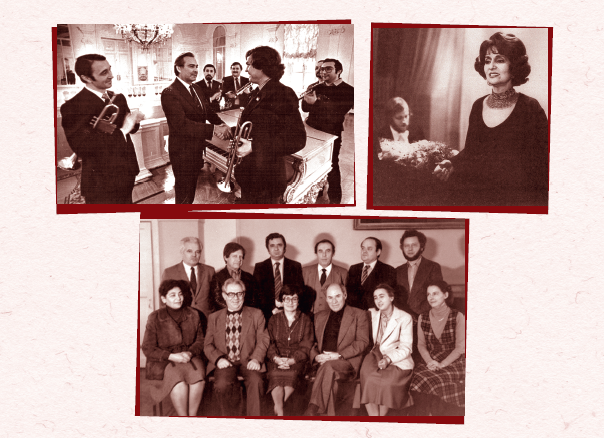
Towards the end of the last century the Gnesins institution became an academy. This new status, formally incorporated in 1992, served to mark the institution juridically for its critical role in the nation’s educational system. The house that Gnesins built thus entered the 21st century as a national and international center of education, research and art. A dissertation council was opened under Academy auspices in 1994, led by N. S. Gulyanitskaya, a leading national scholar in fundamental music studies. In the 1990s, new programs and departments appeared. A. V. Fiseysky came to head the organ studies (1998), later the Department of Organ and Harpsichord. The Department of the History of Music established a Scholarly-Archeographic Council, which deals with questions of early Russian Church singing and campanology (1993), under the direction of N. V. Zabolotnaya. With the spread of the first personal computers, the Gnesins Academy became the first musical institution to offer intensive academic study in the field of computer music; the opening of a special-purpose department incorporating computers and acoustics was initiated by the composer V. S. Ulyanich in 2001.
Through the efforts of music scholar and public figure D. K. Kirnarskaya, the Producing Department began its work (2000). The first management major in a Russian higher school of art — «the Perfoming Arts Producer» — aims at graduating professionals who are at once well-educated musicians and specialists in the economic, administrative and financial issues of arts production. In the first decade of the new millennium, the Academy supported two separate piano departments (as it had in the 1960s), one headed by V. M. Tropp and the other under Y. A. Rozum (2010); classical voice has also come to be represented by two departments, directed by M. S. Agin and A. A. Naumenko. Using the resources of the Department of Polyphony and Analysis and the Department of Contemporary Challenges of Music Education and Culture, a new program was created: the Department of Music Analysis (2009), under the direction of I. P. Susidko. The realm of pedagogy and methodology, always a priority in the Gnesin institution, is now represented by several sections of the institution’s oldest faculties: Piano (as of 2010) and History and Theory of Composition (2014). In general, the scale of methodological activity allows the Academy to remain the central educational institution in the field of musical art for the teaching associations of Russia’s universities. In 2002, faculties and departments of the Academy had the opportunity to work in Khanty-Mansiysk, where they opened a branch. An important initiative was thus continued, that of opening arts institutions on the basis of or with the support of the Gnesin legacy. The first experience of this kind came with the Ufa State Institute of Arts, which in the 1960s had been a training and consulting center of the Gnesins Institute’s Off – Campus Division. Later the Academy played an active role in the creation of the Ippolitov-Ivanov State Musical Pedagogical Institute, the Schnittke Moscow State Institute of Music as well as, music education schools in Magnitogorsk, Chelyabinsk, Tambov, Krasnodar and the Republic of Adygea.
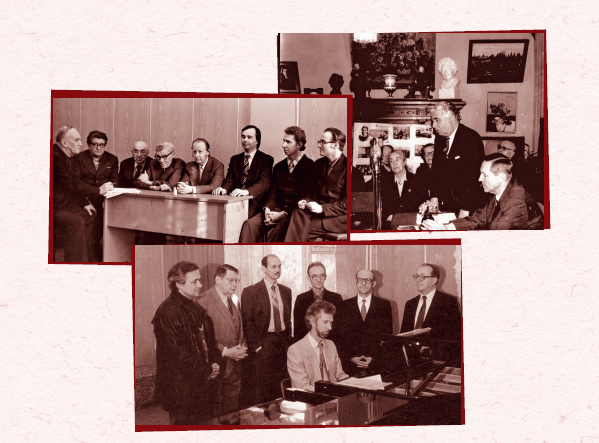
Over its 75-year history (1944 to 2019), the Gnesins Russian Academy of Music has produced more then 16,000 specialists. Among these are well-known names in a number of musical genres: Evgeny Svetlanov, Nikolay Nekrasov, Zara Dolukhanova, Timofei Dokshitser, Yuri Kazakov, Lyudmila Zykina, Mikael Tariverdiev, Iosif Kobzon, Vladimir Dashkevich, Victor Eliseev, Vladimir Matorin, Aleksandr Rudin, Irina Otieva, Nadezhda Babkina, Aleksandr Gradsky and Evgeny Kissin.
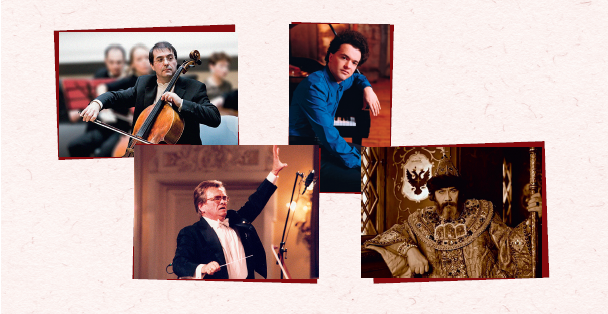
Not only soloists , but also a number of renowned groups have emerged from the halls of the Gnesins institution: the State Academic Chamber Choir conducted by Vladimir Minin; the Dmitry Pokrovsky Folk Music Theater; and the Vadim Sudakov State Capella of Moscow. Many of the graduates are now professors at the Academy: Valentine Levko, Vladimir Fedoseyev, Ivan Mozgovenko, Konstantin Lisovskii, Vladimir Tonkha, Anatoly Kroll, Friedrich Lips, Andrey Gorbachev and others. New names are heard and seen in courses, posters, forum programs, festivals and conferences. The world’s musical culture is regularly expanded with new names of Gnesins graduates, while the structures of their alma mater remain traditional.
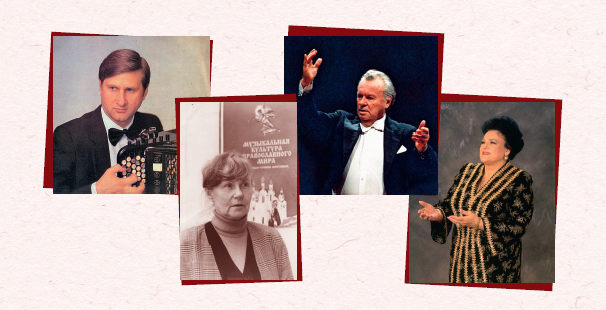
Over 75 years, the Institution (Academy) has sought to preserve, develop and form a national education strategy, its methodological basis — standards, curricula and programs, textbooks and manuals; the Russian school of composition, with its characteristic reliance on the idea of the moral content of art; musicology and the school of performing, including in such new areas as:
- folk orchestra instruments (1948);
- choral conducting (folk choir, 1966);
- solo folk singing (1978);
- jazz orchestra instruments, jazz and pop singing (1984);
- sound engineering (1987);
- computer music, computer research and acoustics (2001);
- music management and the economics of culture (2008).



